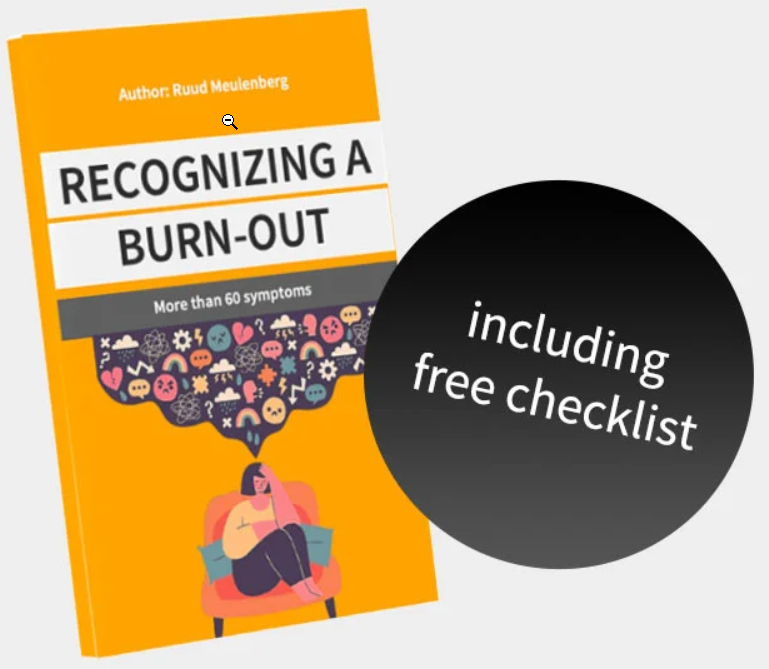Your brain has a lot on its plate. It constantly deals with things like remembering faces, recognizing objects, performing random tasks, and much more. When it takes on too many tasks at once or doesn’t have enough time to process everything properly, there can be a lot of mental strain.
Stress results from prolonged or intense external stimuli, which daily situations can bring on. It can be exceedingly difficult to avoid because life occasionally throws curveballs to everyone. You may worry or fear about an upcoming task, activity, or event. You may be upset by the things around you, such as negative emotions from other people or your family. All these scenarios have an impact on the brain. Here we will discuss how stress affects the brain and ways to keep your health in check.
What Is the Role of the Brain?
The brain is responsible for everything you see, hear, and feel. It is the powerhouse of your body, running on a complex network of neurons that allow you to react to the world around you in an instant. It is shaped like a walnut with many lobes and sections that each have different functions. The brain is essential to your mental health and plays an important part in many things you do daily.
The cerebrum [1] accounts for 85% of the human brain. It is responsible for balance, coordination, and automatic actions. The brain stem [2] connects the brain to the spinal cord and controls autonomic functions like heart rate, breathing, and digestion. The hippocampus [3] is responsible for the storage of long-term memories.
The Importance of a Healthy Brain
A healthy brain is essential to your body’s well-being. It is constantly experiencing and processing new data. When your brain functions properly, you can think and react quickly in an emergency. You can also have the ability to think more clearly and memorize more information. If your brain is unhealthy, you may experience symptoms of depression, anxiety, or even a loss of memory and a decline in your quality of life. This can lead to an inability to remember information, lack of concentration, and forgetfulness.
How Stress Affects the Brain
Acute
Acute stress occurs in the short term. It may last only a few days or weeks. It can be caused by several things, including financial problems, illness, or the death of a loved one. Furthermore, it can also be as simple as being fired or not getting along with someone at work.

Download our
free e-book
Recognizing a burnout
(more than 60 symptoms)
Stress can make it difficult to think quickly, process information properly, and remember things. You may have trouble even thinking of certain words. It can cause a strong physical response like a rapid heartbeat, high blood pressure, irregular breathing, and panic or fear. You may feel exhausted after it is over, or you may not be able to sleep at all.
Chronic
Chronic stress is long-term and occurs for an extended period. It can come from any traumatic event that has happened in your life. You may have experienced it as a child or young adult, or you may be dealing with it now. It may also be caused by burnout, job pressures, poor relationships, and social isolation.
Long term stress may also lead to depression and anxiety, causing serious issues with overall mood stability. It can also increase your risk of a heart attack, stroke, and other health problems. Chronically stressed individuals may have fluctuations in blood pressure, energy loss, and an inability to sleep properly.
Positive and Negatives Effects of Stress on the Brain
Stress may boost your cognitive skills, such as learning and memorizing information rapidly, thinking faster and more clearly, and remembering things. It can improve memory of certain events in life, and it can also make people more motivated to solve problems efficiently and quickly. When you are experiencing stress, you won’t have time to feel overwhelmed, indecisive, or lazy. You will be on your toes trying to figure out how to solve the problem.
Can we help you?
Leave us your information and one of our coaches will contact you in 24H

The negatives effects can be devastating to your body as well as your mental health. Stress can lower immune system response and prevent proper healing from wounds or injuries. It can also cause depression or anxiety that can severely impact your mental health, leading to severe health and emotional issues.
Lifestyle Choices to Keep a Healthy Brain
- Mind and Body Movement – Try to stay active. Get a little exercise each day. Your brain needs physical activity and mental stimulation to function and keep it healthy. You can join a fitness center where they offer classes in fun ways to stay active and stimulate your mind.
- Avoid Stimulants – such as caffeine or alcohol. Caffeine can lead to insomnia or even an increased heart rate. Avoid it after 6 pm to get a good night’s sleep. Alcohol can also be detrimental if you drink too much or too often. It is known to cause anxiety, depression, and slightly lower blood pressure.
- Consider Relaxation Practices – such as meditation, yoga, or deep breathing. These activities help to reduce stress while increasing your mental skills. Learn ways to relax that don’t involve alcohol or other drugs.
- Get adequate sleep – every night. This can be difficult if you work long days and have many responsibilities, but it is crucial when stressed out.
- Eat a Balanced Diet – with vitamins, minerals, whole grains, plenty of fruits, and vegetables. Do not overindulge in calories or sugar. They can cause health problems all around. Try to eat at least one to two whole meals daily. Your body needs the nutrients to function at its best.
- Keep Work Fun and Exciting – Use your benefits to change up some of your work environments, such as making sure the office is well-lit and has plenty of plants. Green walls can help boost energy levels and refresh your mind and body.
- Keep a Positive Attitude – and take frequent breaks. Give yourself time off to reconnect with friends and family. Get out for some fresh air and take a walk or jog. Burnouts can happen if you are not giving yourself a break.
- Have Hobbies – hobbies or interests that keep you busy and interested. These may include painting, playing music, reading, computers, sports, gardening, and other fun things. This is beneficial to how you think and process information.
Tips to Minimize Brain Dysfunction
Here are some top tips to keep your brain in tip-top condition:
- Avoid Distractions – Have some space where you don’t have any distractions while working. Minimizing distractions will allow you to breathe easier, concentrate better, and focus more on the task at hand.
- Keep a Planner – Refrain from overloading yourself with more than you can handle at one time. Schedule time for your plans, even if it is a little bit at a time. Make sure to set your priorities straight. Don’t try to multitask while studying or working at your desk. Sit down and do just one thing at a time. This way, you can stay on track and ensure everything is done.

- Take Regular Breaks – Take them even if it is short, such as ten minutes for every hour at work. During this time, try to get away from your desk and work area. Find a place where you can relax even just for a few minutes. This will help you clear your mind and refocus on the task.
Where Can I Get Help to Reduce Brain Stress?
There are several types of therapy and treatments out there today. Many of these methods involve a combination of talk therapy, counselling, environmental modifications, holistic therapy, and medication.
Talking Therapy
Being open and honest with someone can help you express your feelings and admit that you need help. Having an outlet for your frustrations is an excellent way to keep you from focusing on one thing that bothers you. This can help reduce anxiety and make people more comfortable with certain situations.
Counselling
This is a great way to prevent severe anxiety and depression. The counsellor is trained in dealing with these issues and can help you figure out why certain things are bothering you. They will also help you find a new way of thinking and coping strategies. Counsellors are also trained to be unbiased. They offer a fresh point of view on your worries and how to resolve them.
Environmental Modifications
These can help lower the amount of pressure in your life. Increasing your exposure to nature by walking in a park, taking a quiet nature walk in your neighbourhood, or even working from home are good examples. This change is suggested for anyone stressed out with their job or home situation.
Holistic Therapies
Other alternative treatment options include acupuncture, chiropractic therapy, homeopathic treatment, aromatherapy, and energy healing. If you are struggling with stress and want to find a more natural solution to your problems, these therapies may be suitable for you.
Medication
Some doctors may recommend antidepressants, anti-anxiety medications, or sleeping pills. This is great if you have a physical issue, but be alert to the side effects and the reasons for being prescribed these drugs.
Stress & burnout coaching; for 100% recovery!
Reducing stress and recovering from burnout is simply incredibly difficult. The coaches at Meulenberg Training & Coaching understand exactly what you are going through and know how tough it can be. They have often experienced it themselves! With their years of experience and expertise, they are ready to help you step by step toward a full recovery. The results of our one-on-one coaching and absenteeism training will benefit you for a lifetime!
FAQ
References
- Wikipedia.org – Cerebrum – found on 21/02/2023
Link to page on wikipedia.org - Wikipedia.org – Brain stem- found on 21/02/2023
Link to page on wikipedia.org - Wikipedia.org – Hippocampus – found on 21/02/2023
Link to page on wikipedia.org






